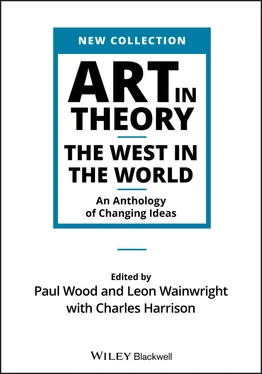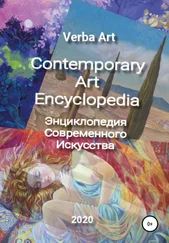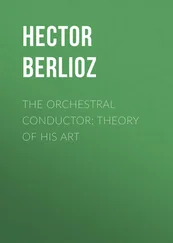1 Cover
2 Title Page
3 Copyright Page
4 Dedication Page
5 Acknowledgements
6 A Note on the Presentation and Editing of Texts
7 General Introduction Art and the issue of ‘globalization’ The Art in Theory project Issues of selection and organization The question of where to begin The contemporary situation
8 Part I: Encountering the World IA Figures of Wealth and PowerIA1 Robert of Clari ( fl c. 1200–16) from The Conquest of Constantinople IA2 Giovanni di Pian de Carpini (‘John of Carpini’) ( c. 1185–1252) from his Journey to the Court of Kuyuk Khan IA3 Marco Polo (1254–1324) from The Travels IA4 ‘Sir John Mandeville’ ( fl c. 1350–60) from his Travels IA5 Various authors on artistic and cultural relations between Italian city states and the Ottoman and Mamluk empires during the late fifteenth and early sixteenth centuries IA5(i) Sigismondo Malatesta of Rimini (1417–68) Letter of introduction for Matteo de’ Pasti to Mehmed II IA5(ii) Marin Sanudo (1466–1536) from his diary for 1 August 1479 IA5(iii) Mehmed II (1432–81) to the Venetian Senate IA5(iv) The Venetian Senate Letter to Mehmed II IA5(v) Luca Landucci (c.1436–1516) from his Florentine diary IA5(vi) Leonardo da Vinci (1452–1519) from a letter to Sultan Bayezid II IA5(vii) Tommaso di Tolfo from a letter to Michelangelo IA6 Giovanni da Empoli (1483–1518) On India, Ceylon and the Spice Islands IA7 João de Castro (1500–48) from Roteiro de Goa até Dio IA8 Simão de Melo (d. 1570) from an inventory of his goods IA9 Johann Huyghen van Linschoten (1563–1611) On Indian religious art IA10 Duarte de Sande (1547–99) from ‘An Excellent Treatise of the Kingdom of China’ IA11 Matteo Ricci (1552–1610) from his journal IA12 Jean‐Baptiste Tavernier (1605–89) On the Peacock Throne IB Across the Ocean SeaIB1 Christopher Columbus (1451–1506) Two texts from his first voyage to America IB2 Amerigo Vespucci (1451–1512) Letter to Lorenzo Pietro Franco de Medici IB3 Hernán Cortés (1485–1547) Two letters from Mexico IB4 Bartolomé de Las Casas (1474–1566) from Apologetic History of the Indies IB5 Toribio de Benavente (‘Motolinía’) (1482–1568) from History of the Indians of New Spain IB6 First Provincial Council in Lima (1551–2) On the destruction of Indian sacred sites IB7 Jean de Léry (1534–1613) from History of a Voyage to the Land of Brazil IB8 Thomas Harriot (1560–1621) from A Briefe and True Report of the New Found Land of Virginia IB9 Bernardo de Balbuena ( c. 1561/68–1627) from Grandeza Mexicana IB10 Juan Rodríguez Freile (1566– c. 1640) On the legend of El Dorado IB11 John Lok ( c. 1533– c. 1615) A Voyage to Guinea in the year 1554 IB12 Olfert Dapper (1636–89) On the city of Benin IB13 William Dampier (1652–1715) The first encounter with indigenous Australian people IC Scholarly ResponsesIC1 Anon. from the Inventory of the Palazzo Medici IC2 Albrecht Dürer (1471–1528) from his diary of his journey to the Netherlands IC3 Thomas Platter (1574–1628) On Mr Cope’s cabinet of curiosities IC4 Michel de Montaigne (1533–92) ‘On the Cannibals’ IC5 Christopher Marlowe (1564–93) from Tamburlaine the Great IC6 Francis Bacon (1561–1626) ‘Of Plantations’ IC7 Francis Bacon (1561–1626) from New Atlantis IC8 Martin de Charmois (1609–61), from his Petition to the King and to the Lords of his Council IC9 Dorothy Osborne (1627–95) from letters to Sir William Temple IC10 Thomas Hobbes (1588–1679) ‘Of the Naturall Condition of Mankind’ IC11 John Tradescant (1608–62) from the Museum Tradescantianum, or A Collection of Rarities IC12 John Dryden (1631–1700) on the ‘Noble Savage’ IC13 Aphra Behn ( c. 1640–89) from Oroonoko, or The Royal Slave IC14 Charles Perrault (1628–1703) from Parallel of the Ancients and Moderns IC15 William Temple (1628–99) On the distinctiveness of Chinese gardens IC16 Gottfried Wilhelm Leibniz (1646–1716) from ‘Preface’ to Novissima Sinica IC17 John Locke (1632–1704) ‘Of Property’, from Two Treatises of Government
9 Part II: Enlightenment and Expansion IIA The Orient in Fact and FancyIIA1 Antoine Galland (1646–1715) Preface to d’Herbelot’s Bibliothèque Orientale IIA2 Anon. from The Arabian Nights Entertainments IIA3 Lady Mary Wortley Montagu (1689–1762) Letters from the Turkish Empire IIA4 Charles‐Louis de Secondat, Baron de Montesquieu (1689–1755) from Persian Letters IIA5 Joseph Addison (1672–1719) from ‘The Pleasures of the Imagination’ IIA6 John Shebbeare (1709–88) ‘The taste of England at present …’ IIA7 Oliver Goldsmith ( c. 1728–74) from The Citizen of the World IIA8 Sir William Chambers (1723–96) from A Dissertation on Oriental Gardening IIA9 Sir William Jones (1746–94) from his Discourses to the Asiatick Society of Bengal IIA10 William Beckford of Fonthill (1760–1844) from Vathek IIA11 Sir George Staunton (1737–1801) from his account of the Macartney embassy to China IIB Curiosities and ColoniesIIBI Hans Sloane (1660–1753) from The Natural History of Jamaica IIB2 Jonathan Swift (1667–1745) from Gulliver’s Travels IIB3 Louis Antoine de Bougainville (1729–1811) On Tahiti IIB4 A selection of texts from the Cook voyages to the Pacific 1768–80 IIB4(i) Joseph Banks On two figures and a Marae , or temple precinct, in Tahiti, June 1769 IIB4(ii) James Cook Two accounts of the practice of tattooing IIB4(iii) James Cook On the people of Australia, April to August 1770 IIB4(iv) William Wales An account of music and dancing in Tahiti, 1773 IIB4(v) George Forster An account of artefacts at Tonga, October 1773 IIB4(vi) George Forster On the stone statues and wood carvings of Easter Island, March 1774 IIB5 Ignatius Sancho (1729–80) and Laurence Sterne (1713–68) An exchange of letters IIB6 Manuel Amat y Junyent, Viceroy of Peru (1707–82) Letter on ‘Casta’ paintings IIB7 Ignatius Sancho (1729–80) Letter to Jack Wingrave IIB8 William Hodges (1744–97) from Travels in India IIB9 Thomas Jefferson (1743–1826) from Notes on the State of Virginia IIB10 Olaudah Equiano ( c. 1745/50–97) On the Middle Passage IIB11 William Beckford of Somerley (1744–99) from A Descriptive Account of the Island of Jamaica IIB12 Erasmus Darwin (1731–1802) On revolution, slavery and the Wedgwood medallion IIC Changing Ideas and ValuesIIC1 David Hume (1711–76) from ‘Of National Characters’ IIC2 Jean‐Jacques Rousseau (1712–78) from ‘A Discourse on the Moral Effects of the Arts and Sciences’ IIC3 Comte de Caylus (1692–1765) from A Collection of the Antiquities of Egypt IIC4 Voltaire (François‐Marie Arouet; 1694–1778) from Essay on the Manners and Spirit of Nations IIC5 Voltaire (François‐Marie Arouet; 1694–1778) from ‘Essay on Taste’ IIC6 Immanuel Kant (1724–1804) from Observations on the Feeling of the Beautiful and the Sublime IIC7 Johann Joachim Winckelmann (1717–68) from The History of Ancient Art IIC8 John Millar (1735–1801) Notes on the ‘Four Stages’ theory of human development IIC9 Denis Diderot (1713–84) ‘Supplement to the Voyage of Bougainville’ IIC10 Johann Gottfried Herder (1744–1803) from A Monument to Johann Winckelmann IIC11 Samuel Johnson (1709–84) On the state of nature IIC12 Antoine Quatremère de Quincy (1755–1849) from Egyptian Architecture IIC13 Joshua Reynolds (1723–92) from his Discourses 1776 and 1786 IIC14 Edward Gibbon (1737–94) Reflections on civilization and barbarism
Читать дальше












